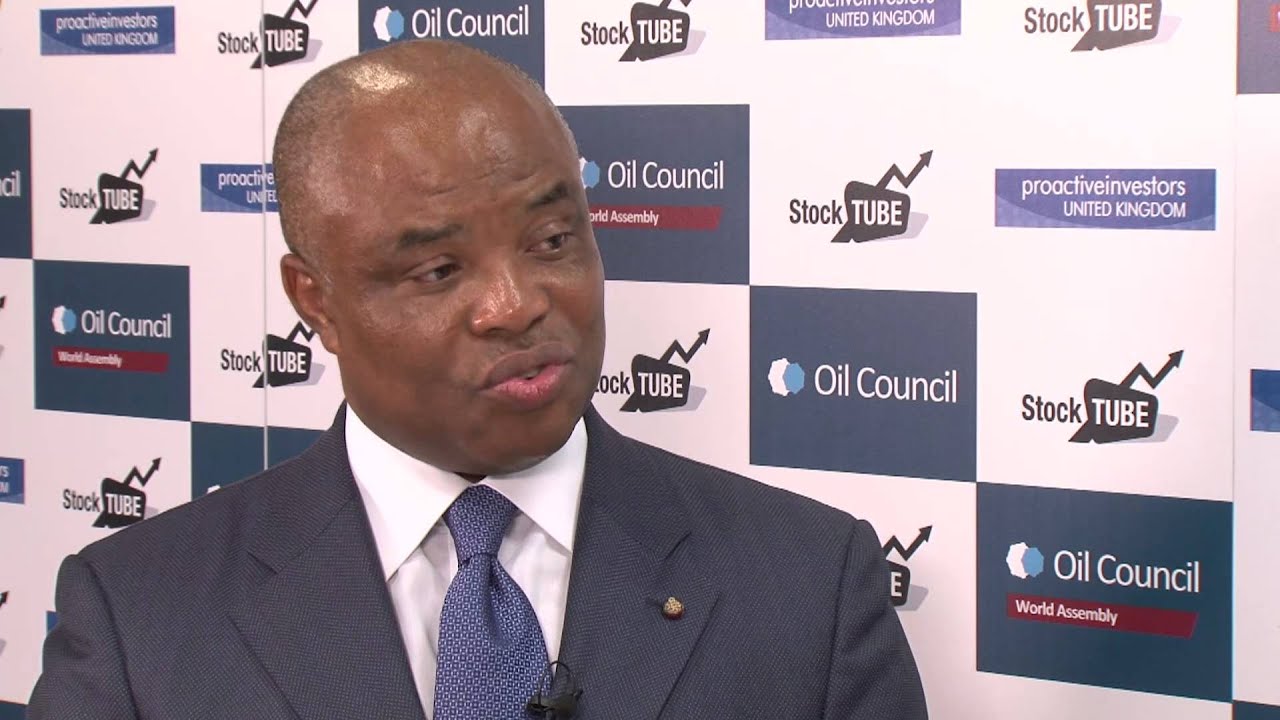Economy
Seplat Suffers 6.2% Revenue Shortfall in FY’19

By Dipo Olowookere
One of the players in the Nigerian energy sector, Seplat Petroleum Development Company Plc, has announced its financial statements for the year ended December 31, 2019.
The company, listed on both the Nigerian and London stock exchanges, recorded a 6.2 percent decline in the revenue generated in the period under review, N214.2 billion in 2019 FY compared with N228.4 billion achieved in 2018 FY.
The revenue shortfall was majorly impacted by lower production and oil price as Brent oil price averaged $64.04/bbl over 2019 (2018: $71/bbl). The average premium to Brent achieved by the Group in 2019 was $0.36/bb.
In the statements, the firm said the cost of sales reduced to N92.7 billion from N108.5 billion, while the gross profit rose to N121.5 billion from N119.8 billion due to higher gas processing revenues and lower non-production costs primarily consisting of royalties and DD&A.
The DD&A charge for oil and gas assets decreased in the period under review, reflecting lower depletion of reserves because of decreased production compared to the prior year.
As at December 31, 2019, Seplat generated N9.2 billion as other income, higher than N4.6 billion realized in 2018.
According to the financial documents, general and administrative expenses was trimmed to N21.7 billion from N24.4 billion, while operating profit increased to N95.8 billion from N94.9 billion, mainly because of the gas-tolling revenue recognised but set against the reversal of previously recognised accrued interest on NPDC receivables due to the settlement of these receivables.
Also, the finance income appreciated to N4.1 billion from N3.0 billion, while the finance cost went down to N10.3 billion from N17.3 billion.
In the results, Seplat said its profit before tax increased to N89.9 billion from N80.6 billion, while the profit after tax significantly jumped to N85.0 billion from N44.9 billion.
As earlier reported, Seplat is proposing to pay a final dividend of $0.05 to its shareholders for the financial year, with qualification date set at May 12, 2020, while the Register of Shareholders will be closed by the registrar, Datamax Registrars Limite, on May 13, 2020, with the payment date fixed for June 4, 2020 and the Annual General Meeting (AGM) to hold on May 28, 2020.
Seplat said Shareholders holding their shares on the Nigerian Stock Exchange without a valid Nigerian Certificate for Capital Importation (CCI) will be paid their dividend in Naira as the default currency.
It also said shareholders holding their shares on the Nigerian Stock Exchange with a valid CCI will be paid their dividend in US Dollars as the default currency.
However, those shareholders may instead elect to receive their entire dividend payment in Naira (partial elections are not permissible). Evidence of the CCI must be provided to Datamax Registrars Limited.
In addition, shareholders holding their shares through depository interests on the London Stock Exchange will be paid their dividend in US Dollars as the default currency.
However, those shareholders may instead elect to receive their entire dividend payment in Pounds Sterling, adding that partial elections are not permissible.
Economy
Dangote’s Impact Visible in Our Economy, Communities—Ogun Governor

By Aduragbemi Omiyale
The Governor of Ogun State, Mr Dapo Abiodun, has praised Dangote Industries Limited for being an “exemplary strategic partner in our collective pursuit of industrial advancement and sustainable economic development.”
Speaking at the opening ceremony of the ongoing 15th Gateway International Trade Fair in Abeokuta, the Governor described the conglomerate as a strategic partner in the industrial and economic development of the state through investments.
Mr Abiodun, represented by the Commissioner for Trade, Industry and Investments, Mr Emmanuel Adebola Sofela, disclosed that, “Dangote’s legacy in Ogun State stands as a model of how meaningful collaboration between government and the private sector can deliver transformative results.”
According to him, the Dangote Group is no longer just an investor but a trusted ally—“one whose impact is visible in our economy, our communities, and the future we are building.”
He stated that over the years, the group’s unwavering commitment to excellence, innovation, and nation-building has not only strengthened Nigeria’s industrial backbone but has also contributed immensely to the prosperity and competitiveness of Ogun State.
“Through visionary investments, job creation, and consistent support for infrastructure and community growth, the Dangote Group has demonstrated what it means to be a responsible corporate citizen and a catalyst for broad-based development.
“Their partnership with Ogun State continues to open doors of opportunity for our people, energise local industries, and reinforce our reputation as a leading destination for productive enterprise,” he further noted.
Recall that Ibese, in the Yewa axis of Ogun State, is a host to the Dangote Cement Plc’s 12 million mtpa production capacity cement plant, while another 6 million mtpa cement plant is currently under construction at Itori, also in Ogun State.
Earlier, the president of Ogun State Chamber of Commerce, Industries, Mines and Agriculture (OGUNCCIMA), Mr Niyi Oshiyemi, in the same vein, commended the management of Dangote Group for always rising to be counted among the partners of the chamber in an effort to collaborate with the private sector for meaningful economic development.
“Today is not just the commencement of another trade fair but the celebration of collaborations, innovations, and shared prosperity.
“The trade fair in the last 15 years has served as a vital platform where ideas meet opportunity, where businesses connect with the market and where partnerships are formed to drive sustainable economic growth,” he said.
According to him, in an era defined by rapid technological advancement, global competitiveness and ever-evolving consumer needs, no business can thrive in isolation. The future belongs to those who build strong partnerships.
Mr Oshiyemi noted that OGUNCCIMA has been able to strengthen Ogun State’s position as a leading commercial and industrial hub in Nigeria and West Africa because it has been able to encourage investments, trade linkages and technology transfer by supporting policies and initiatives that enhance the ease of doing business in the state.
Economy
Presidential Directives Boost Efforts to Unlock Owowo Deepwater Resources—Baxi

By Adedapo Adesanya
The Managing Director and Lead Country Manager of ExxonMobil’s affiliates in Nigeria, Mr Jagir Baxi, has noted that recent presidential directives have been instrumental in strengthening the company’s efforts to unlock deepwater resources.
Mr Baxi was appointed to the position in July 2025 to oversee ExxonMobil’s business in Nigeria, including Esso Exploration and Production Nigeria Limited and Esso Exploration and Production Nigeria (Offshore East) Limited.
In an interview with The Energy Year, he said the directives issued by President Bola Tinubu in May 2025 were specifically designed to eliminate rent-seeking, slash project timelines, reduce contracting costs, and restore investor confidence in the Nigerian upstream sector.
According to him, Esso Nigeria is now focusing on advancing deepwater oil and gas developments as part of ExxonMobil’s portfolio after its divestment from the joint venture with Nigerian National Petroleum Company (NNPC) Limited.
“The presidential directives have been instrumental in strengthening Nigeria’s competitiveness in the oil and gas sector. For Esso Nigeria and our shareholder, ExxonMobil, they’ve provided a meaningful platform to reassess our discovered but undeveloped resources – most notably Owowo.
“These directives signal a commitment from the highest levels of government to address long‑standing barriers to deepwater investment, and that’s an important catalyst for industry confidence,” he said.
The ExxonMobil executive noted that the directives have enabled the oil major to take tangible steps forward while working closely with the state oil company and other agencies in the sector.
“We are co‑developing a contracting strategy tailored specifically to the scale and complexity of a world‑class deepwater project,” he noted, adding, “In parallel, we’ve collaborated with the Nigerian Content Development and Monitoring Board to shape a project‑specific National Content Strategy – one designed to both enable the project and deliver sustained, impactful benefits to Nigerian businesses and the workforce. That alignment is critical if we want to create value that extends far beyond the life of a single development.”
“That said, one essential element is still outstanding: codified implementation guidance. For investors, particularly those making multi‑billion‑dollar commitments over 20 to 30‑year horizons, clarity and predictability are non‑negotiable. Our concern stems from recent experience – instances where progress delivered through certain government actions was later eroded by others. It underscores why stability in fiscal and regulatory frameworks is so vital.
“If Nigeria can translate these directives into consistent, durable rules of engagement, the country will be positioned to unlock deepwater investment at a scale that delivers long‑term value for the nation, its citizens, and its partners. And we believe that is absolutely achievable,” he explained.
Economy
CAC Pushes for Harmonised National Register to Strengthen Anti-Crime Fight

By Adedapo Adesanya
The Corporate Affairs Commission (CAC) has called for the establishment of a single, harmonised national register for beneficial ownership to strengthen Nigeria’s anti-corruption framework and improve the fight against corporate and financial crimes.
The Registrar-General of CAC, Mr Hussaini Magaji, made the call during the commission’s 35th anniversary celebration, designated as Anti-Corruption Day on Tuesday in Abuja.
Mr Magaji said the current fragmented system of beneficial ownership disclosure, where some sectors maintained separate registers outside the CAC framework, created duplication, inconsistencies and regulatory loopholes that could be exploited for illicit activities.
According to him, CAC is legally and institutionally positioned to serve as the central repository for beneficial ownership information in Nigeria.
He said that access to accurate corporate records was critical to the successful investigation and prosecution of financial crimes.
He said that the CAC remained the custodian of information on company ownership, control and management.
“No successful prosecution of corporate and financial crimes can be achieved without the support of the Corporate Affairs Commission,” Mr Magaji said.
He reaffirmed the commission’s commitment to sustained collaboration with anti-corruption and law enforcement agencies.
“These include the Economic and Financial Crimes Commission (EFCC), Independent Corrupt Practices and Other Related Offences Commission (ICPC), Nigerian Financial Intelligence Unit (NFIU) and the National Drug Law Enforcement Agency (NDLEA),” he said.
Mr Magaji called for deeper information sharing, joint investigations and real-time verification processes to enhance enforcement outcomes.
The CAC boss also urged stakeholders to support the passage of the Persons with Significant Control (PSC) Rules into an Act of the National Assembly, saying a stronger legal framework was required to address sophisticated abuses of corporate structures.
He disclosed that companies that failed to disclose their beneficial owners were flagged as inactive in CAC records, adding that such entities should not enjoy the privileges of legality.
Mr Magaji, however, expressed concern that some financial institutions continued to transact with non-compliant companies, describing the practice as a major weakness in the national compliance chain.
On internal reforms, he said, CAC had demonstrated zero tolerance for corruption by surrendering three staff members to the ICPC over alleged misconduct and submitting details of 248 fake company registrations to the EFCC for investigation.
According to him, the fight against corruption requires coordinated efforts across institutions and sustained commitment to transparency and accountability.
-

 Feature/OPED6 years ago
Feature/OPED6 years agoDavos was Different this year
-
Travel/Tourism10 years ago
Lagos Seals Western Lodge Hotel In Ikorodu
-

 Showbiz3 years ago
Showbiz3 years agoEstranged Lover Releases Videos of Empress Njamah Bathing
-

 Banking8 years ago
Banking8 years agoSort Codes of GTBank Branches in Nigeria
-

 Economy3 years ago
Economy3 years agoSubsidy Removal: CNG at N130 Per Litre Cheaper Than Petrol—IPMAN
-

 Banking3 years ago
Banking3 years agoSort Codes of UBA Branches in Nigeria
-

 Banking3 years ago
Banking3 years agoFirst Bank Announces Planned Downtime
-

 Sports3 years ago
Sports3 years agoHighest Paid Nigerian Footballer – How Much Do Nigerian Footballers Earn


















